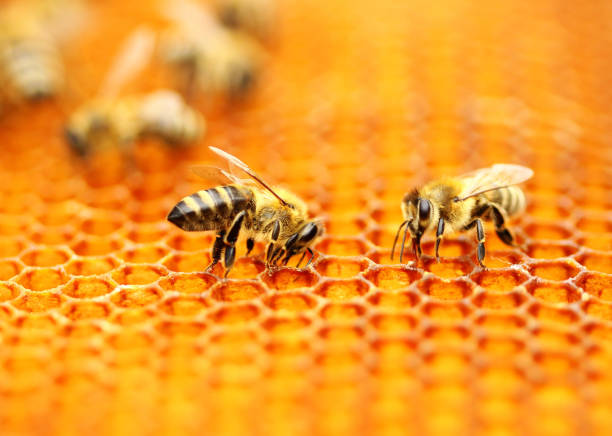Bee health and hive management are crucial aspects of running a successful honey farm. Bees play a vital role in pollinating crops and producing honey, making it essential for beekeepers to prioritize their well-being. Proper hive management is key to ensuring the health and productivity of a bee colony.
One of the most important factors in maintaining bee health is providing them with a clean and safe environment. This includes regularly inspecting hives for signs of disease or pest infestations, as well as keeping the area around the hives free from chemicals that could harm the bees. It’s also essential to provide bees with access to clean water and a variety of flowers for nectar and pollen collection.
Regular hive inspections are necessary to monitor the overall health of the colony. Beekeepers should look for signs of disease, such as deformed wings or unusual behavior, and take action promptly if any issues are detected. It’s also important to check for signs of overcrowding or swarming, which can indicate that additional space is needed within the hive.
Proper nutrition is another critical aspect of bee health. Bees require a balanced diet of nectar, pollen, and water to thrive. Beekeepers can supplement their diet by providing wedding venue near me sugar syrup or protein patties during times when natural food sources may be scarce. Additionally, planting a diverse range of flowers around the farm can help ensure that bees have access to a variety of nutrients throughout the year.
In addition to monitoring bee health, hive management also involves regular maintenance tasks such as cleaning equipment, replacing old comb, and requeening colonies when necessary. Requeening involves replacing an older queen with a younger one to maintain genetic diversity within the colony and prevent issues such as aggression or decreased productivity.
Another important aspect of hive management is controlling pests and diseases that can threaten bee health. Common pests include varroa mites, wax moths, and small hive beetles, all of which can weaken colonies if left unchecked. Beekeepers should use integrated pest management techniques to control these pests while minimizing harm to beneficial insects.
Overall, maintaining bee health requires careful attention to detail and proactive management practices on behalf of beekeepers. By prioritizing cleanliness, nutrition, regular inspections, and pest control measures on their honey farms, beekeepers can help ensure that their colonies remain healthy and productive year after year.
Creek House Honey Farm
5005 4th Ave, Canyon, Texas, 79015
(806) 381-3446





